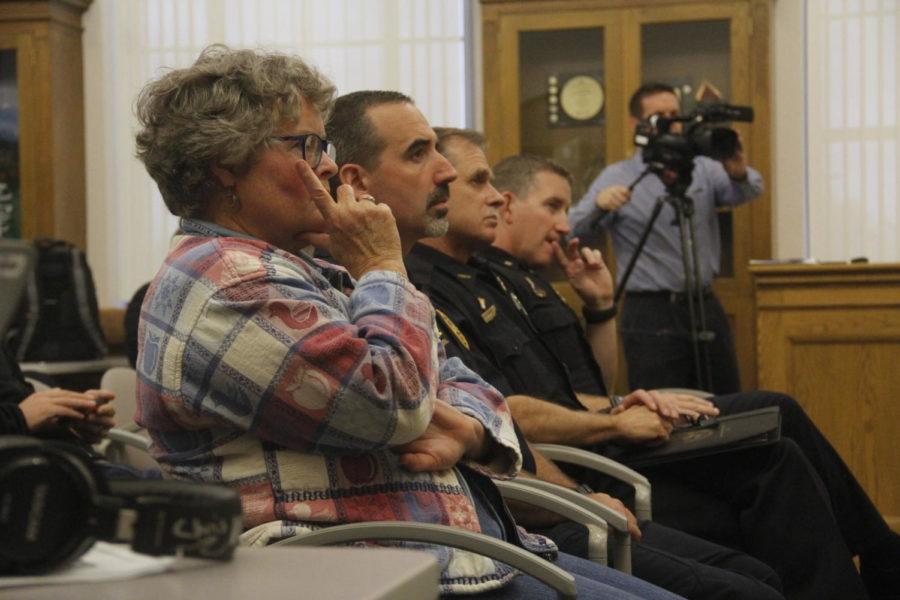City Council discusses homelessness, public safety, mental health
September 25, 2018
The Ames City Council discussed public safety and mental health resources at their meeting Tuesday.
Before the discussion began, Mayor John Haila said the city would be actively looking into safety improvements in the city as well as taking public feedback.
“This one tragedy will not define us as an unsafe community,” Haila said.
However, not everyone shared that belief. The one member of the public to speak during the discussion, Holly Varnum, said she didn’t feel safe.
“I’m here to speak about safety,” Varnum said. “I heard the news she had been murdered. [She] was murdered in broad daylight this week. The news was so shocking to me. Right now, I don’t feel safe at all.”
Varnum, who identified herself as having a disability, said more resources needed to be provided by the city to address the issue
“We need more help to people who need it,” Varnum said. “We need more mental health resources for people who have disabilities like me and the homeless.”
In a briefing provided before her comments, Ames Police Chief Chuck Cychosz said it was important to report any safety issues or public concerns to the police so those issues can be addressed, but Varnum said she had trouble speaking to authorities and has issues feeling safe as a result.
“I am trying my best to talk with people and the authorities,” Varnum said. “Sometimes I need to write it down or to mime if I have to. How should we help the homeless if we make contact or see someone being taken away in broad daylight or at night? How should we approach them? Should we call the authorities first or interact with whoever is trying to kidnap or murder someone?”
These questions were addressed by Haila who said the police are the best source to go through to talk about safety concerns or to report a crime, but Varnum again mentioned her difficulty speaking to authorities.
“I am not good at expressing myself to the authorities, but I have been in contact with the mental health advocates here [who are] helping me talk with authorities,” Varnum said.
Varnum expressed these concerns following the safety briefing given by Cychosz. This briefing was centered around city plans to make Ames safer and what ways they could potentially help people affected by homelessness or mental illness.
Cychosz started by saying what initiatives they already have to keep areas around Ames safe. These initiatives were mainly focused on parks and recreation and included mowing pathways to make sure visibility is high, extending light paths in the parks to make areas better lit, safety walks and reactive removal of people who are reportedly camping on public or private lands.
Cychosz said the safety walks are something the police currently do in Campustown to identify areas that could have their safety improved, and they would be extending this practice to areas like parks and natural areas around Ames.
“It may be prudent to develop a system of safety walks along trails and natural areas in the city,” Cychosz said.
Other areas where the city has recently made improvements include creating a task force that has gone through public lands prone to encampments and searching for potential campers. In their initial searches, the task force has been unable to find any campers.
The city is also clearing additional brushes and closing down certain trails until those changes are made. One bike trail that is currently closed stretches from South Fourth Street to the Veterinary Medicine building on campus.
Outside of safety issues, Cychosz said the resources the city provides should also be addressed. A review of these resources should consider human services, transportation and housing.
One program Cychosz pointed out was the Emergency Residence Project, which is “a gateway to a range of support and public services that can help those affected by homelessness.” One thing the program does is help people get safer living situations.
When it comes to homelessness, Cychosz agreed with Haila that it is important to not generalize all homeless people as dangerous following the incident. Instead, Cychosz said they would prioritize getting additional perspectives to ensure safety solutions to support the homeless population.
















